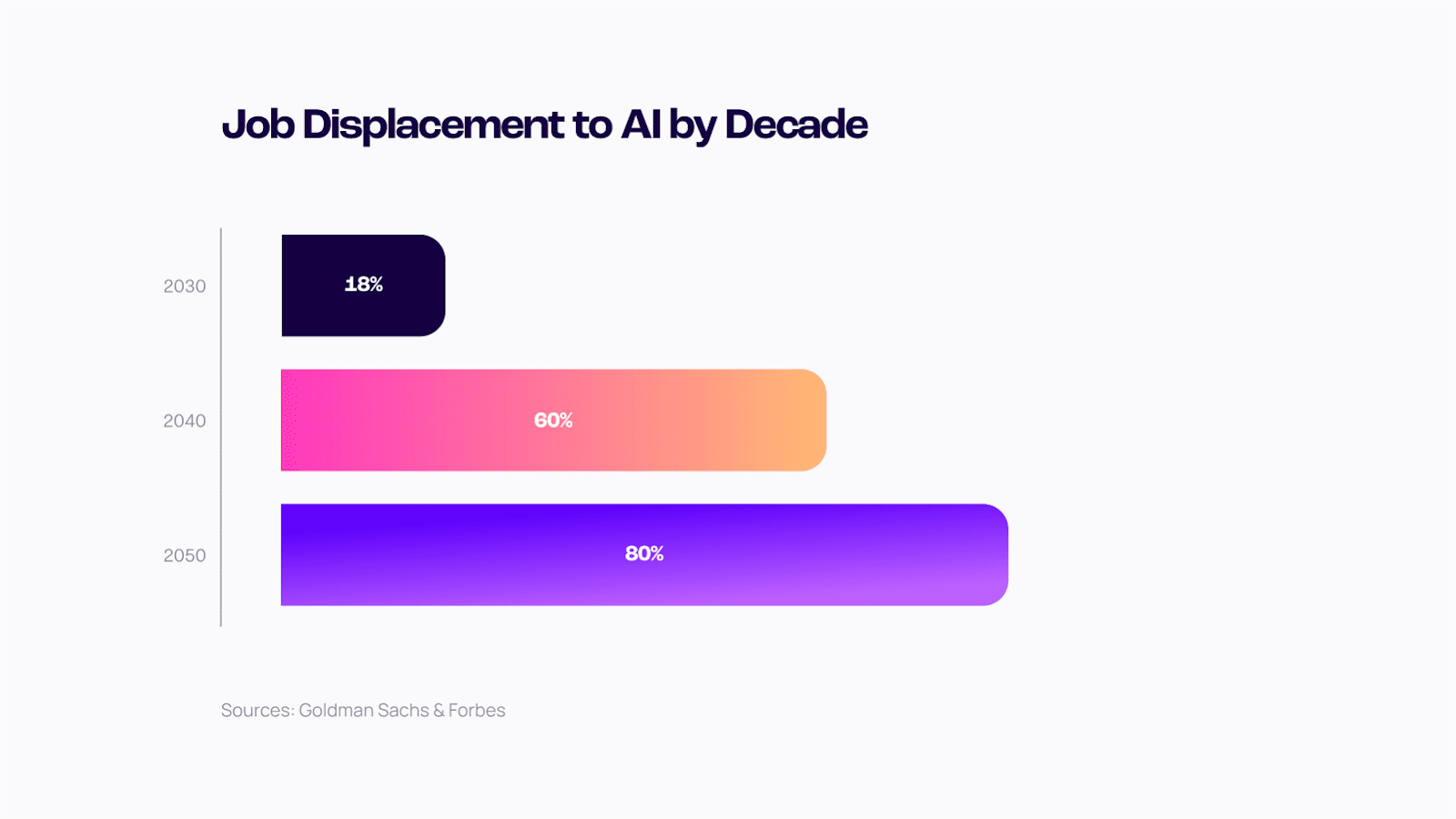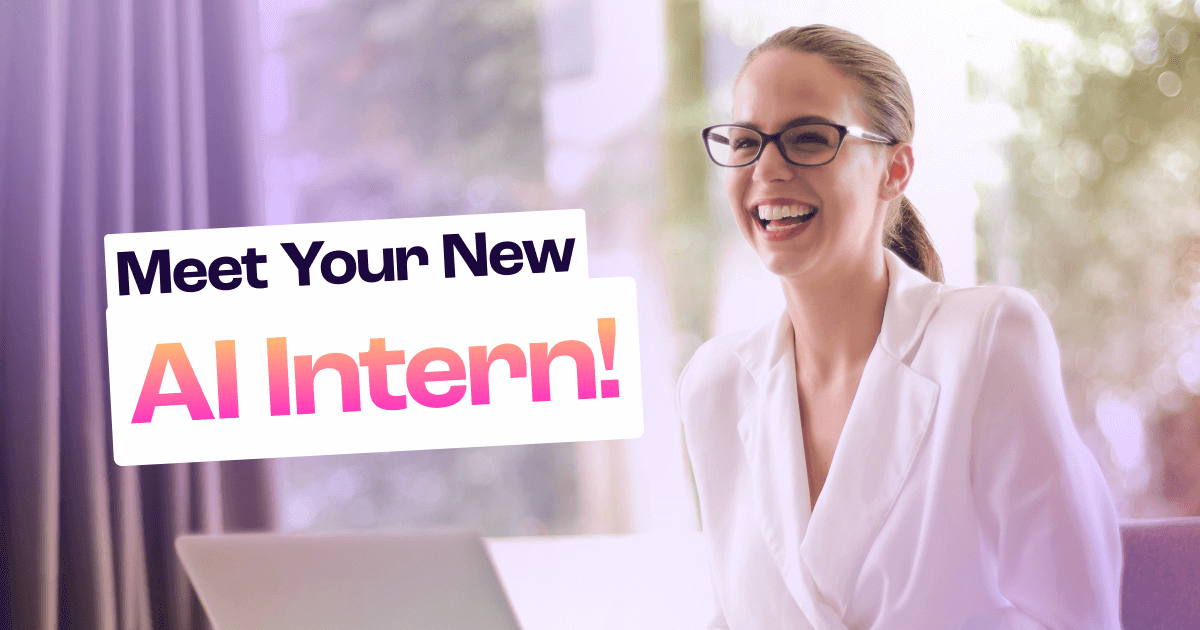
It's Game Over. AI Will Steal These Jobs...
It’s no longer a matter of if — it’s a matter of when.
Artificial intelligence (AI) isn’t coming for the future of work. It’s already here!
From cashierless stores to chatbots answering customer service calls, we’re living in a time when technology is quietly — and sometimes not-so-quietly — replacing human roles.
But here’s the truth: the real danger isn’t AI. The real danger is doing nothing.
In this article, we’ll break down which jobs AI is most likely to replace, when the takeover is expected to happen, and most importantly — what you can do right now to stay ahead of the curve and secure your spot in the future workforce.
Why AI Is Replacing Jobs
AI is not the first wave of automation we’ve experienced. We’ve already seen the rise of assembly lines, ATMs replacing bank tellers, and voice assistants taking the place of human switchboard operators. But today’s AI is different.
Unlike past machines that followed clear instructions, modern AI can learn, predict, and generate. It doesn’t just follow orders — it makes decisions, adapts, and evolves. That makes it incredibly powerful… and incredibly disruptive.
What’s Driving the Shift?
- Cost savings: Employers save millions by reducing labor costs
- 24/7 output: Machines don’t need breaks, lunch, or PTO
- Accuracy: AI reduces human error, especially in data analysis roles
Sectors like customer service, logistics, and clerical work are already showing major signs of AI-driven disruption. But this is just the beginning.
How Many Jobs Will be Replaced by AI in the Future?
According to the World Economic Forum, AI and automation are expected to displace 85 million jobs globally by 2025, and as many as 375 million by 2030, according to McKinsey.
Let’s break it down by decade:
🚨 Jobs AI Will Replace by 2030
How many jobs will AI replace by 2030?
It’s not all that far away, and Goldman Sachs estimates that by 2030, ~300 million jobs globally could be affected (18% of work hours worldwide) by generative AI technologies.
The first roles to go will be amongst:
- Data entry clerks and admin assistants
- Customer service reps replaced by chatbots
- Retail cashiers replaced by self-checkout and cashierless tech
- Warehouse pickers and packers replaced by robotic systems
⏳ Jobs AI Will Replace by 2040
As AI progresses rapidly, more and more job roles are at risk. But how many jobs will AI replace by 2040?
Forbes predicts AI will automate or transform 50% to 60% of jobs, with these being top hits:
- Long-haul truck drivers replaced by autonomous trucks
- Bookkeepers and junior accountants
- Legal assistants and paralegals
- Junior marketers and content creators replaced by social media automation and generative AI
- Medical billing and coding specialists
📉 Jobs AI Will Replace by 2050
So now you’re wondering how many jobs will AI replace by 2050? The same research by Forbes suggests full AI dominance (80% and higher) is possible by 2050, assuming steady innovation.
This stage will see the following roles replaced:
- Assembly line workers and machine operators
- Taxi and ride-share drivers
- Insurance underwriters and claims processors
- Junior financial analysts and stock traders

Industries Most at Risk
If you work in any of these sectors, take note:
🏭 Manufacturing: robotics, automated assembly lines
📦 Warehousing: fulfillment centers, inventory management
🛍️ Retail: self-checkout, cashierless stores
🚛 Transportation: self-driving trucks, delivery bots
📞 Customer service: AI chatbots, voice assistants
💻 Admin & clerical: document processing, scheduling
📲 Content production: AI-generated videos, copywriting, proofreading
Jobs that Will be Replaced by AI
🏗 Manufacturing
- Assembly Line Workers — repetitive production tasks easily done by industrial robots
- Machine Operators — monitoring and adjustments replaced by smart automation
- Quality Inspectors — AI vision systems catching defects faster and more accurately
📦 Warehousing
- Warehouse Pickers — robot pick-and-pack systems (like Amazon’s Kiva robots)
- Inventory Clerks — smart inventory software and automated stock checks
- Shipping Coordinators — AI logistics tools automating dispatch and tracking
🛍 Retail
- Cashiers — self-checkout kiosks and fully cashierless store tech
- Sales Associates — basic customer queries handled by AI kiosks or apps
- Stock Clerks — automated shelf restocking and smart shelves tracking inventory
🚚 Transportation & Logistics
- Delivery Drivers — autonomous delivery vehicles and drones for last-mile
- Long-Haul Truck Drivers — self-driving trucks on highways for freight
- Taxi & Ride-share Drivers — driverless ride-share fleets (Waymo, Tesla, etc.)
📞 Customer Service
- Call Center Agents — AI chatbots for common queries and account tasks
- Technical Support Reps — AI-guided troubleshooting for simple issues
- Help Desk Assistants — knowledge base AI responding to FAQs
🗂 Admin & Clerical
- Data Entry Clerks — routine data processing fully automated
- Receptionists — AI virtual receptionists for call routing and scheduling
- Payroll Clerks — payroll software running calculations, deductions, and reports
✍️ Content Production
- Junior Copywriters — AI tools producing blog posts, product descriptions
- Proofreaders — AI grammar and style checkers catching errors instantly
- Translators — automated translation for standard text (DeepL, Google Translate)
How to Work With AI If Your Job Is at Risk
Here’s the good news: AI is a tool. And the workers who know how to use it will thrive.
You already use AI daily — when you ask Siri for directions, let Netflix recommend a movie, or speak into your remote.
You’re not new to this. You just need to level up.

Leveraging artificial intelligence in the workplace will make you more productive, more efficient and more desirable to employers.
Start here:
- Use AI tools that boost your productivity: Think ChatGPT, Canva AI, Notion AI
- Add hybrid skills: Learn to blend human judgment with AI support
- Train for roles that manage, support, or enhance AI systems
- Focus on what AI can’t do: empathy, ethics, strategy, and originality
Jobs Least Likely to Be Replaced by AI
We’ve gone DEEP on the 25 safest jobs that AI can’t replace YET, but in a nutshell, these areas are safe, for now:
💡 Strategic Roles
🏥 Healthcare, Childcare & Counseling
🤝 Client Relations and Leadership
⚖️ Ethics, Law, and Complex Decision-Making
How to Future-Proof Your Career Against AI
If the idea of AI feels daunting, don’t worry. With the right strategies, you can not only survive but thrive with AI in the workplace.
- Build AI Literacy: Learn how AI works in your industry so you can spot opportunities instead of being blind sided by change. Take time to understand the tools, terms, and trends shaping your field.
- Keep Learning: Upskill regularly with online courses, certifications, and career communities like Paybump. Staying relevant means committing to lifelong learning, especially as technology evolves fast.
- Stack Your Skills: Combine your core industry knowledge with digital fluency. For example, pair your medical expertise with data analytics or your customer service skills with AI tool management.
- Watch for Automation Trends: Follow news and reports on what tasks are being automated in your role. Stay proactive—if repetitive tasks are at risk, start building new capabilities that AI can’t easily replicate.
- Embrace Human-Centered Work: Double down on skills that require empathy, emotional intelligence, and personal connection—qualities AI struggles to mimic. Focus on leadership, relationship-building, and problem-solving that requires human interaction!
Final Thoughts: Don’t Run from AI — Leverage It
The truth? AI and job loss is inevitable. It’s like any great industrial revolution - out with the old and in with the new.
But AI isn’t stealing jobs — it’s transforming them.
And the people who learn how to partner with AI are going to be the ones who rise, not fall.
That’s where Paybump comes in.
We’ve created a powerful collection of AI prompts that help you write better resumes, prep for interviews, and land jobs faster.
You’ll also get:
- Weekly remote job leads
- AI tools and tutorials
- Insider career strategies
Ready to thrive in the AI-powered future?
Join the Paybump newsletter for FREE or sign up to our Pro membership today and take control of your career before the AI wave leaves you behind.
FAQs
What jobs will AI replace first?
AI will automate routine tasks and repetitive roles like data entry, basic admin, and some customer service jobs.
How many jobs will AI replace by 2030?
Forecasts from major research firms suggest that up to 30% of jobs in some industries could be automated by 2030.
What industries will be hit hardest by AI job loss?
Manufacturing, retail, transport, and clerical work are expected to see the biggest reductions in human roles as automation expands.
Can I stop my job from being replaced by AI?
You can reduce your risk by upskilling, learning how to work alongside AI, and shifting to tasks that require human judgment and creativity.
Will AI create new jobs too?
Yes, AI is expected to create entirely new roles such as AI trainers, prompt engineers, and people who manage AI operations.
What jobs will be safe from AI in the future?
Jobs that rely on deep human connection, complex problem-solving, creativity, or ethical decision-making are less likely to be replaced.
Is it worth reskilling for AI jobs now?
Absolutely. Reskilling now helps you stay competitive and opens new opportunities in industries growing with AI.






